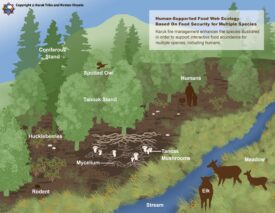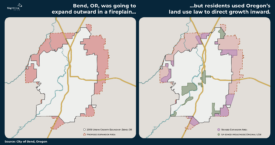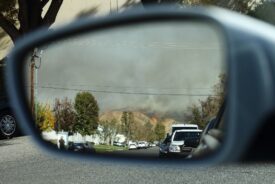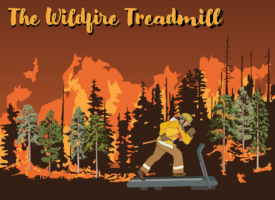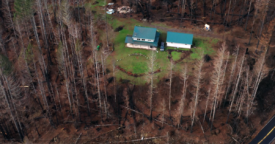April 15, 2024
MEDIA CONTACT: Kate Anderson, Sightline Institute, kate@sightline.org
FULL ARTICLE: What’s misunderstood about Indigenous cultural fire is sovereignty
SACRAMENTO, CA – A proposed policy in California, SB 310, would acknowledge Tribes’ cultural fire practices and respect fire practitioners’ right to burn. A new article from the nonpartisan think tank Sightline Institute describes how such legislation not only reintroduces helpful cultural fire practices in a climate-intensified wildfire age but also affirms the sovereignty of Tribes more broadly, in a way that could serve as a model to other jurisdictions.
Sightline’s discussion focuses on the Karuk Tribe, whose homelands straddle the California-Oregon border and who hold millennia-old cultural burning knowledge and practices that support their food, health, and spiritual traditions as well as local ecosystems. But barriers to burning infringe on their sovereignty.
SB 310 and measures to expand co-stewardship of national forests benefit Tribal culture and forest ecosystems and represent wins in the struggle for others to understand and recognize Tribal sovereignty.
- Government agencies are scrambling to reverse the dominant paradigm of aggressively suppressing wildfire. This includes recognizing the role of Indigenous land stewardship and extensive burning.
- The Karuk Tribe supports Senate Bill 310, currently near the finish line in the California legislature, which would explicitly recognize Tribal sovereignty with respect to cultural burning.
- The United States Wildland Fire Mitigation and Management Commission plan recommends that Congress authorize the US Forest Service to enter into co-management agreements with Tribes, allowing shared or transferred decision-making authority, and recommends a blue-ribbon panel to identify how to reduce co-management barriers.
The policy efforts are steps toward unlearning the idea that the United States “gives rights” to Tribes and re-learning that sovereign Tribes hold those rights intrinsically.
Article author and Senior Researcher Kate Anderson spoke to Bill Tripp, director of Natural Resources and Environmental Policy for the Karuk Tribe, about the paradigm shift.
“I’ve learned in those conversations that respecting Tribal sovereignty is key for Karuk cultural burning,” said Anderson. “And burning is also key for Karuk cultural sovereignty. Strengthening people’s understanding of and respect for sovereignty can address the wildfire crisis while honoring the Karuk’s rights.”
Read the full analysis: What’s misunderstood about Indigenous cultural fire is sovereignty
Related:
- Oregon’s Land Use Law Creates Wildfire-Adapted Communities | Bend residents have shown us how.
- Uncontainable Wildfires Are Inevitable. Community Destruction Is Not. | Five policy shifts could help communities harden their homes against fire danger.
- The Best Wildfire Solution We’re Not Using | Three ways to curb the sprawl that traps us on a wildfire treadmill.
###
Kate Anderson is the Senior Researcher in Sightline Institute’s Farms and Forests program, leading the organization’s work on rural lands and environmental sustainability. Find her latest research here.
Sightline Institute is an independent, nonpartisan, nonprofit think tank providing leading original analysis of forests, democracy, energy, and housing policy in the Pacific Northwest, Alaska, British Columbia, and beyond.

